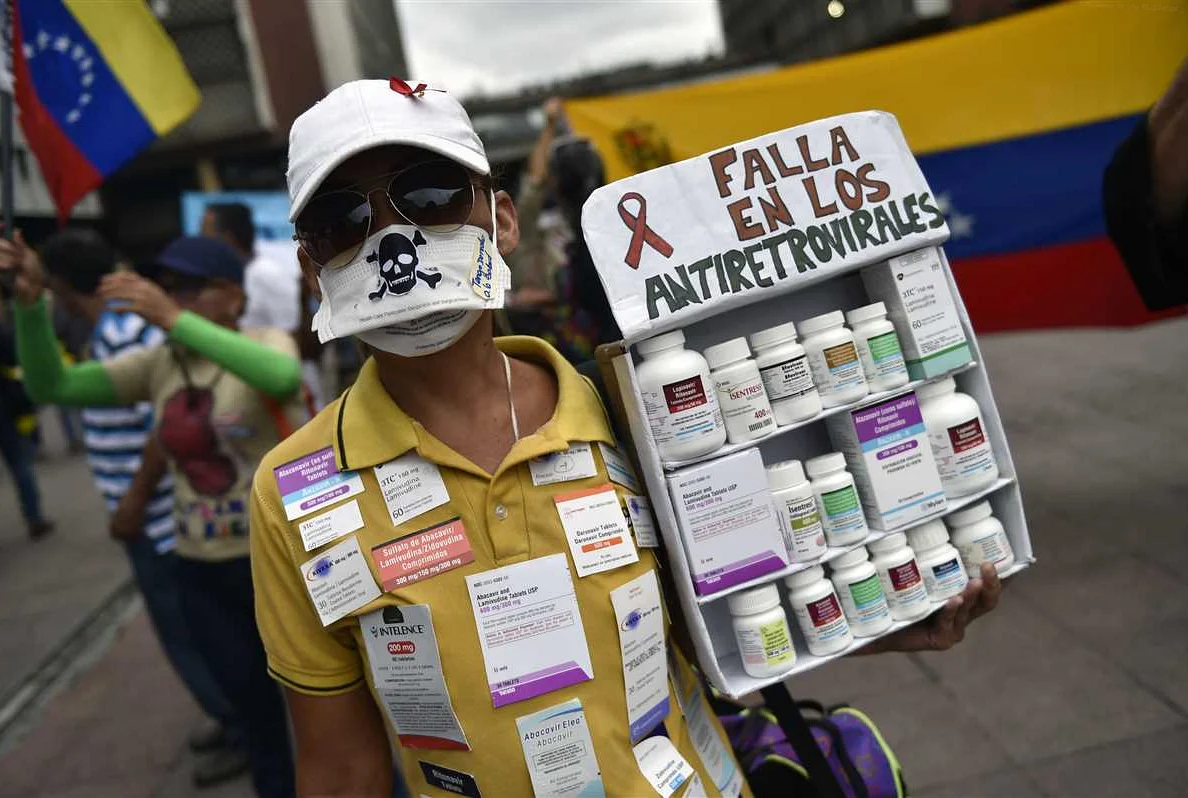FAS calls on Ministry of Health to resume purchase of medicines for HIV patients
Содержимое
The Federal Antimonopoly Service (FAS) is urging the Ministry of Health to resume purchasing necessary medications for HIV patients in order to ensure continuity of treatment and prevent any negative consequences for patients.
The Federal Antimonopoly Service (FAS) has called on the Ministry of Health to immediately resume the procurement of HIV medicines, following the recent decision to halt the purchasing process. This decision has raised concerns among the HIV community and advocacy groups, who fear that it will lead to a shortage of essential medications for people living with HIV.
In a statement, the FAS emphasized the importance of ensuring a stable supply of HIV medicines in order to meet the needs of patients across the country. The agency also stressed that any interruptions in the procurement process could have serious consequences for the health and well-being of those affected by HIV.
Furthermore, the FAS noted that the decision to halt the procurement of HIV medicines could potentially violate antimonopoly laws. The agency explained that such actions could create barriers to competition and result in higher prices, as well as limit the availability of alternative treatments.
The FAS has urged the Ministry of Health to take immediate action to resume the procurement process and ensure the availability of HIV medicines for all those in need. The agency also called for increased transparency and accountability in the procurement system to prevent similar interruptions in the future.
FAS Urges Ministry of Health

The Federal Antimonopoly Service (FAS) has called on the Ministry of Health to resume the procurement of HIV medicines. The FAS believes that the interruption in the procurement process has led to a shortage of essential medicines for HIV patients.
In a letter addressed to the Ministry of Health, the FAS emphasized the importance of ensuring a stable supply of HIV medicines to guarantee the uninterrupted treatment of patients. The FAS also highlighted the need for transparency and competition in the procurement process to ensure fair prices and high-quality medications.
The FAS expressed concern that the interruption in the procurement process could result in higher prices and a decrease in the quality of the medicines available. They urged the Ministry of Health to take immediate action to resume the procurement process and prevent any negative consequences for patients.
According to the FAS, the interruption in the procurement process occurred due to a delay in the approval of the procurement plan. The FAS called for a speedy resolution to this issue to prevent any further delays in the supply of HIV medicines.
The FAS also recommended that the Ministry of Health consider diversifying its procurement sources to reduce reliance on a single supplier. This would help to ensure a more competitive market and lower prices for HIV medicines.
Overall, the FAS’s call to the Ministry of Health to resume the procurement of HIV medicines reflects their commitment to protecting the interests of patients and promoting fair competition in the healthcare sector.
to Resume Procurement
The Ministry of Health has been urged by the Federal Antimonopoly Service (FAS) to resume the procurement of HIV medicines. This comes after a halt in drug purchases led to a shortage of essential medications for people living with HIV.
The FAS has expressed concern about the critical situation that has arisen due to the disconnection of HIV patients from the necessary treatment. The lack of medication can have serious consequences for patients, including the development of drug resistance and the progression of the disease.
The FAS has called on the Ministry of Health to take immediate action to resume the procurement of HIV medicines. They have also urged the Ministry to ensure transparency and fairness in the procurement process to avoid any potential violations of anti-monopoly laws.
In addition, the FAS has recommended that the Ministry of Health implement measures to prevent future shortages of HIV medicines. This includes developing a long-term procurement strategy to ensure a stable supply of medications and maintaining a reserve stock of essential drugs.
It is crucial for the Ministry of Health to prioritize the procurement of HIV medicines and take swift action to address the current shortage. Resuming the procurement process will not only provide vital medication to those in need but also help prevent the spread of HIV and improve the overall health and well-being of individuals living with the disease.
of HIV Medicines

The Federal Antimonopoly Service (FAS) has called on the Ministry of Health to resume the procurement of HIV medicines in order to provide uninterrupted access to treatment for people living with HIV in Russia. This comes after a recent suspension of procurement, which has raised concerns among patient advocacy groups and healthcare providers.
According to the FAS, the suspension was due to a disagreement between the Ministry of Health and a particular manufacturer over pricing. However, the FAS argues that this issue should not impact the availability of essential medications for HIV treatment.
In a letter to the Ministry of Health, the FAS emphasized the importance of continuous procurement to ensure a stable supply of HIV medicines in the country. The FAS also highlighted the need for transparent and fair procurement procedures that promote competition and prevent monopolistic practices.
Without access to regular and uninterrupted supplies of HIV medicines, people living with HIV in Russia may face serious health consequences, including a higher risk of illness and death. It is crucial that the Ministry of Health and manufacturers work together to resolve any pricing disputes and prioritize the well-being of patients.
| 1. Ensures uninterrupted access to treatment for people living with HIV |
| 2. Prevents potential health consequences, such as increased risk of illness and death |
| 3. Promotes competition and prevents monopolistic practices |
| 4. Supports the well-being and rights of people living with HIV |
In conclusion, resuming the procurement of HIV medicines is crucial for ensuring the health and well-being of people living with HIV in Russia. The Ministry of Health and manufacturers should work together to resolve any pricing disputes and prioritize the needs of patients. Transparent and fair procurement procedures are essential to prevent interruptions in the supply of essential medications.
Background
The procurement of HIV medicines in the Ministry of Health has been put on hold, leading to a shortage of essential medication for patients. The Federal Antimonopoly Service (FAS) has urged the Ministry of Health to resume the procurement process in order to ensure that those in need have access to life-saving treatment.
The delay in procurement has been caused by bureaucratic hurdles and the need to comply with new regulations. However, this has resulted in a significant impact on patients who rely on these medications to manage their HIV infection.
HIV is a serious health issue in many countries, and Russia is no exception. According to official data, over a million people in Russia have been diagnosed with HIV, and the number is steadily increasing. The timely procurement of HIV medicines is crucial to providing the necessary treatment and preventing the spread of the virus.
The FAS has emphasized the importance of resuming the procurement process to address the current shortage. They have also called for transparent and competitive practices to ensure the availability and affordability of HIV medicines for all patients in need.
Challenges in Medicines Procurement

The procurement of HIV medicines presents several challenges that need to be addressed in order to ensure a continuous and uninterrupted supply of these life-saving drugs. These challenges include:
| Limited availability of suppliers | There is a limited number of suppliers who produce the required HIV medicines, which can lead to a monopoly situation and increase the risk of shortages. Efforts should be made to identify and engage with more suppliers to promote competition and ensure a diversified supply chain. |
| Price fluctuations | The prices of HIV medicines can be volatile, with sudden increases or decreases depending on various factors such as market demand, currency exchange rates, and production costs. This can make budgeting and planning difficult for the procurement agencies. Measures should be implemented to stabilize prices and protect against extreme fluctuations. |
| Quality assurance | Ensuring the quality and safety of HIV medicines is crucial. Procurement agencies need to establish rigorous quality assurance mechanisms to verify the authenticity and efficacy of the procured medicines. Regular inspections and testing should be conducted to maintain a high standard of quality. |
| Logistics and distribution | The efficient transportation and distribution of medicines is vital to guarantee their timely delivery to the end users. Procurement agencies should collaborate with logistics providers to optimize the supply chain and reduce the risk of stockouts or delays. |
| Legal and regulatory requirements | Complying with legal and regulatory requirements, both domestic and international, is essential in medicines procurement. Stringent procurement procedures and documentation must be followed to ensure transparency, fairness, and accountability in the procurement process. |
Addressing these challenges will require close collaboration between the Ministry of Health, procurement agencies, suppliers, and other stakeholders. By working together and implementing effective strategies, the procurement of HIV medicines can be improved, leading to better access and treatment outcomes for people living with HIV.